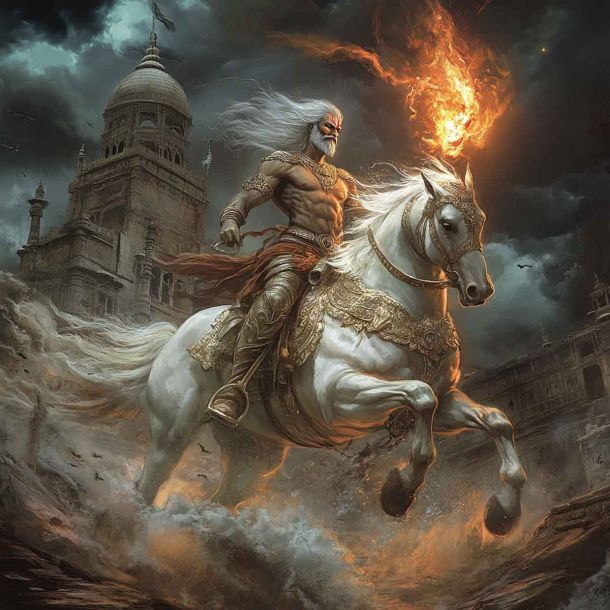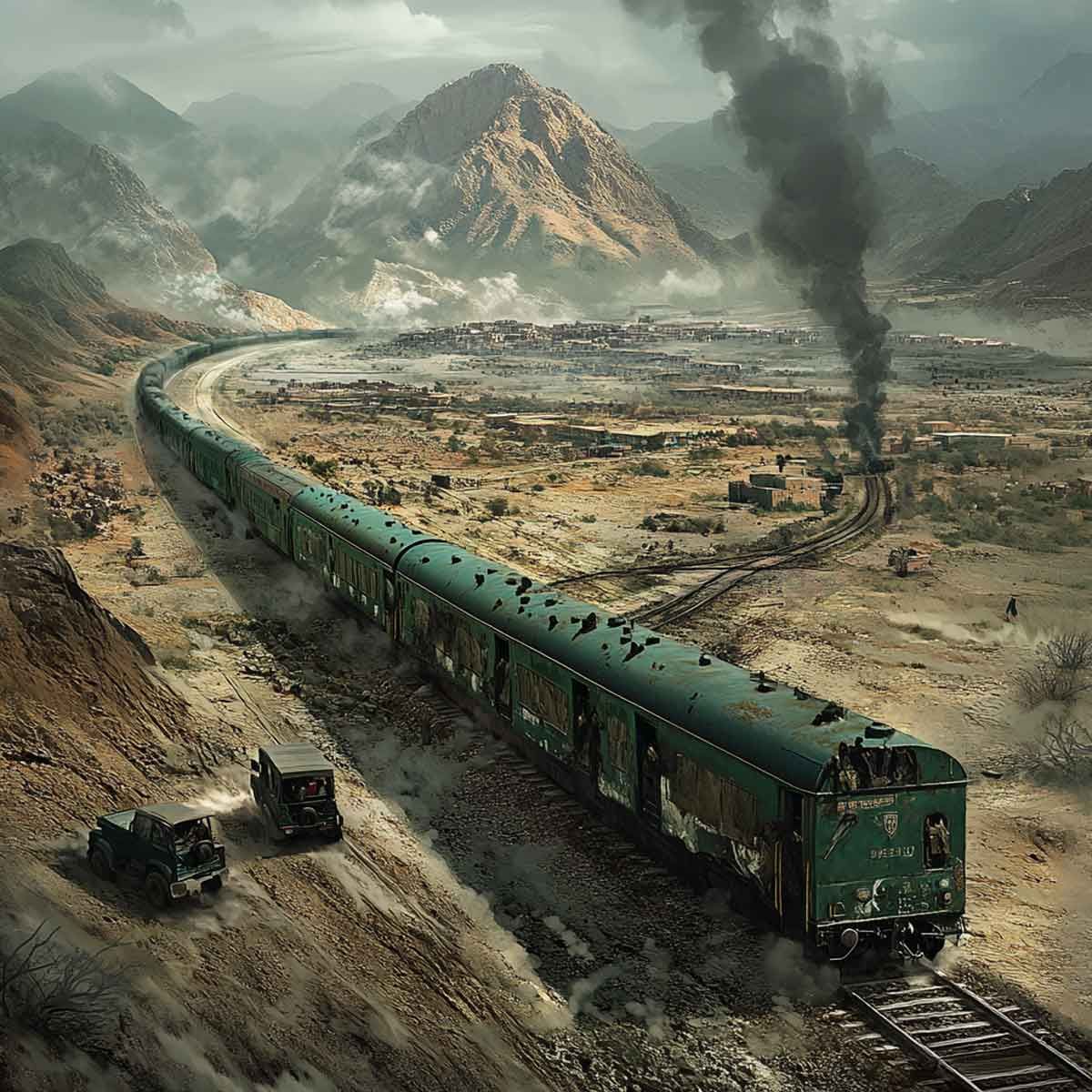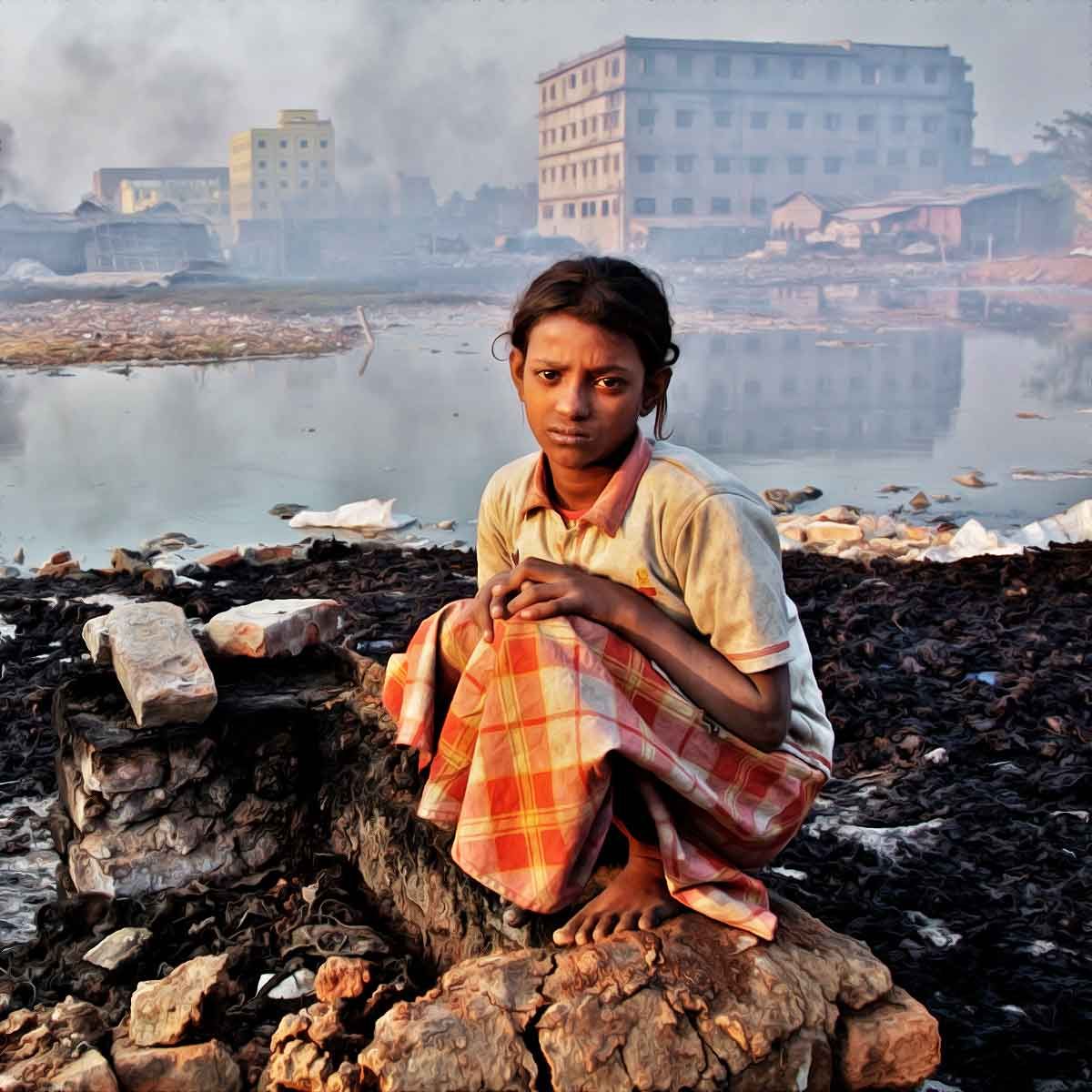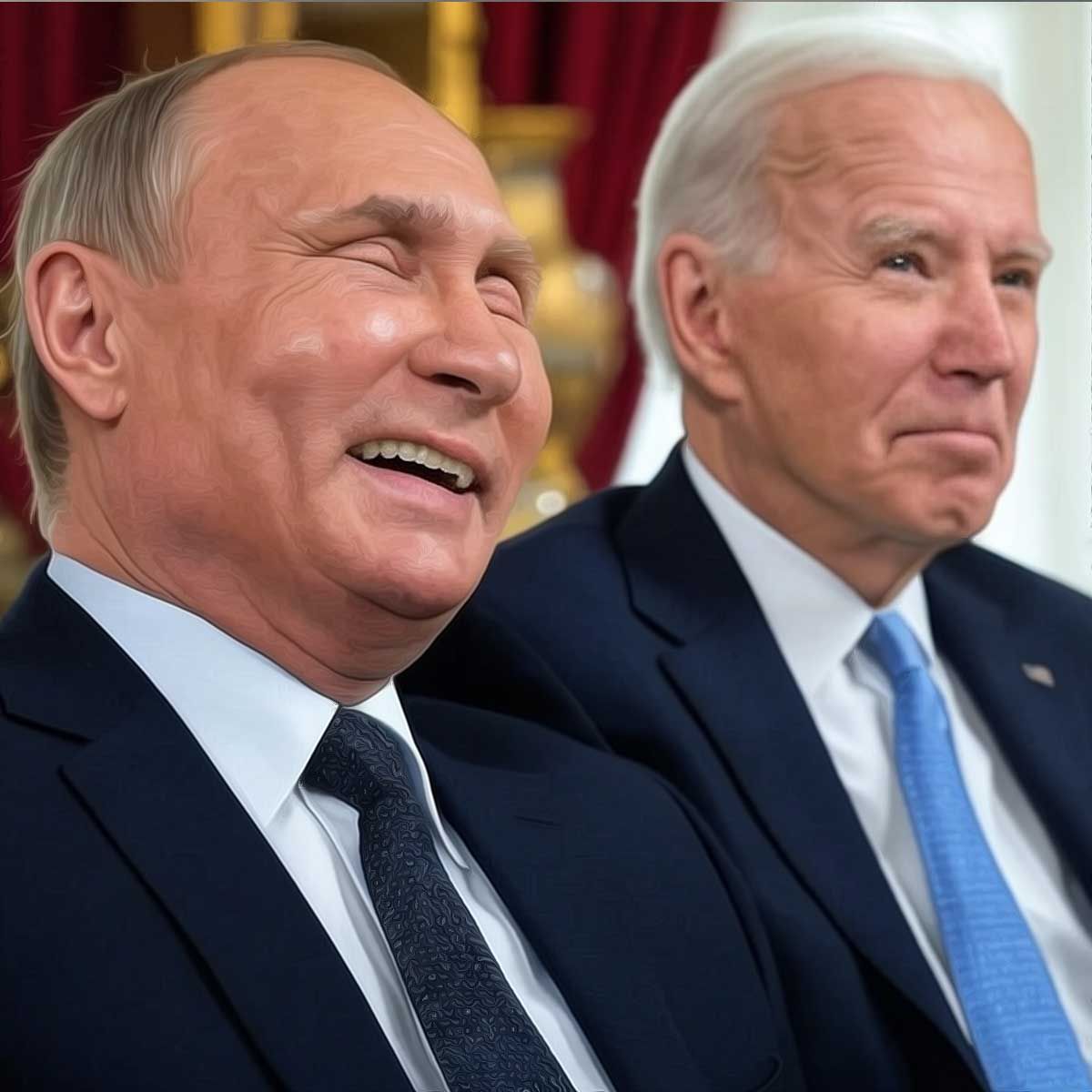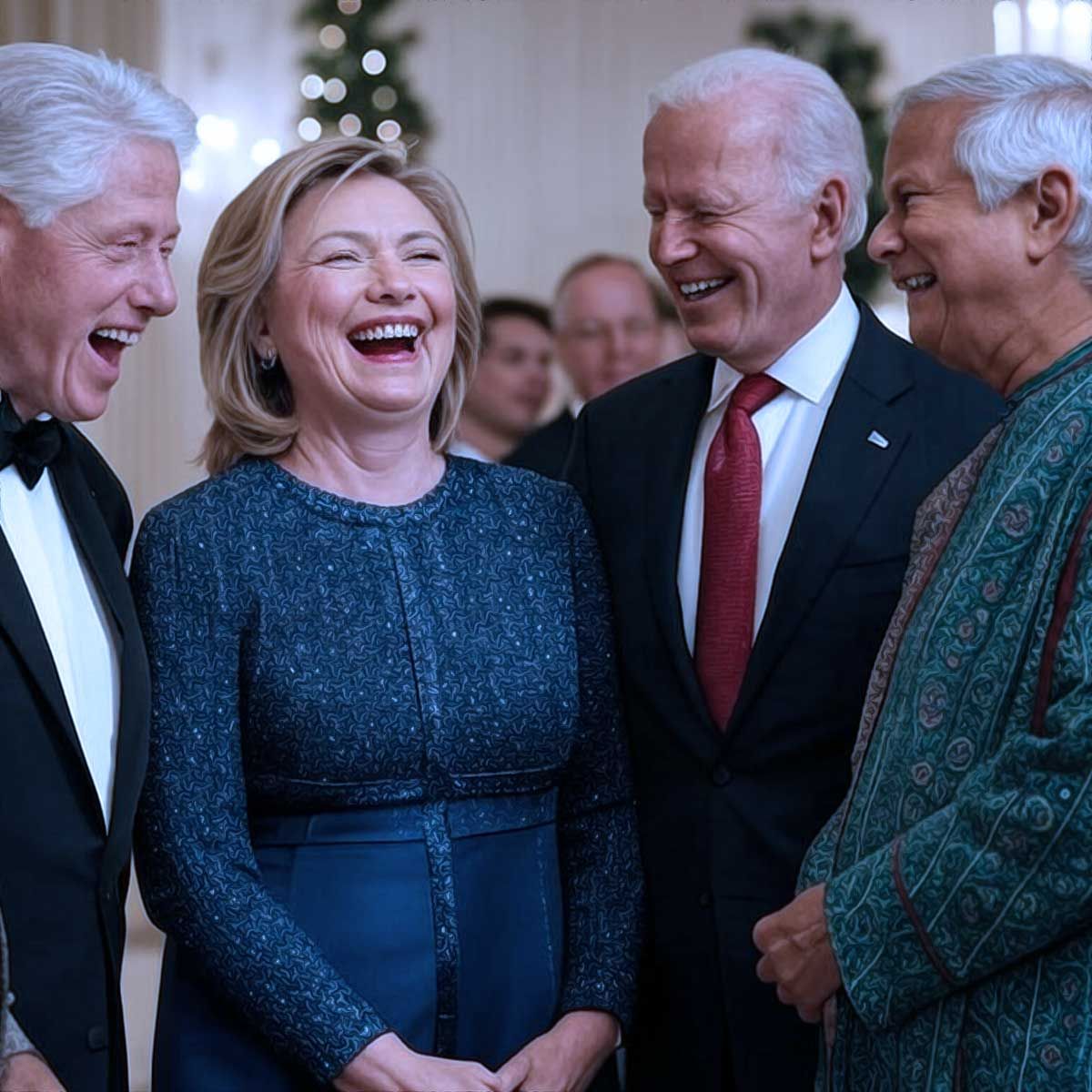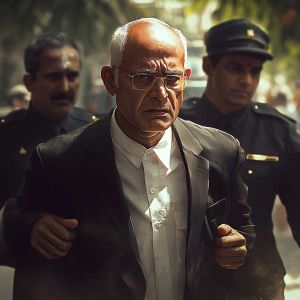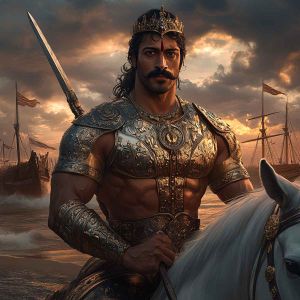Sanatan Articles
Satyaagrah
Written on
Satyaagrah
Written on
Satyaagrah
Written on
Satyaagrah
Written on
Satyaagrah
Written on
JOIN SATYAAGRAH SOCIAL MEDIA
"It cannot be when the root is neglected that what springs from it will be well ordered": Nehru shouted, 'Total rubbish! We don’t need a defence plan. Our policy is ahimsa. We foresee no military threats. Scrap Army! Police are good enough for security’
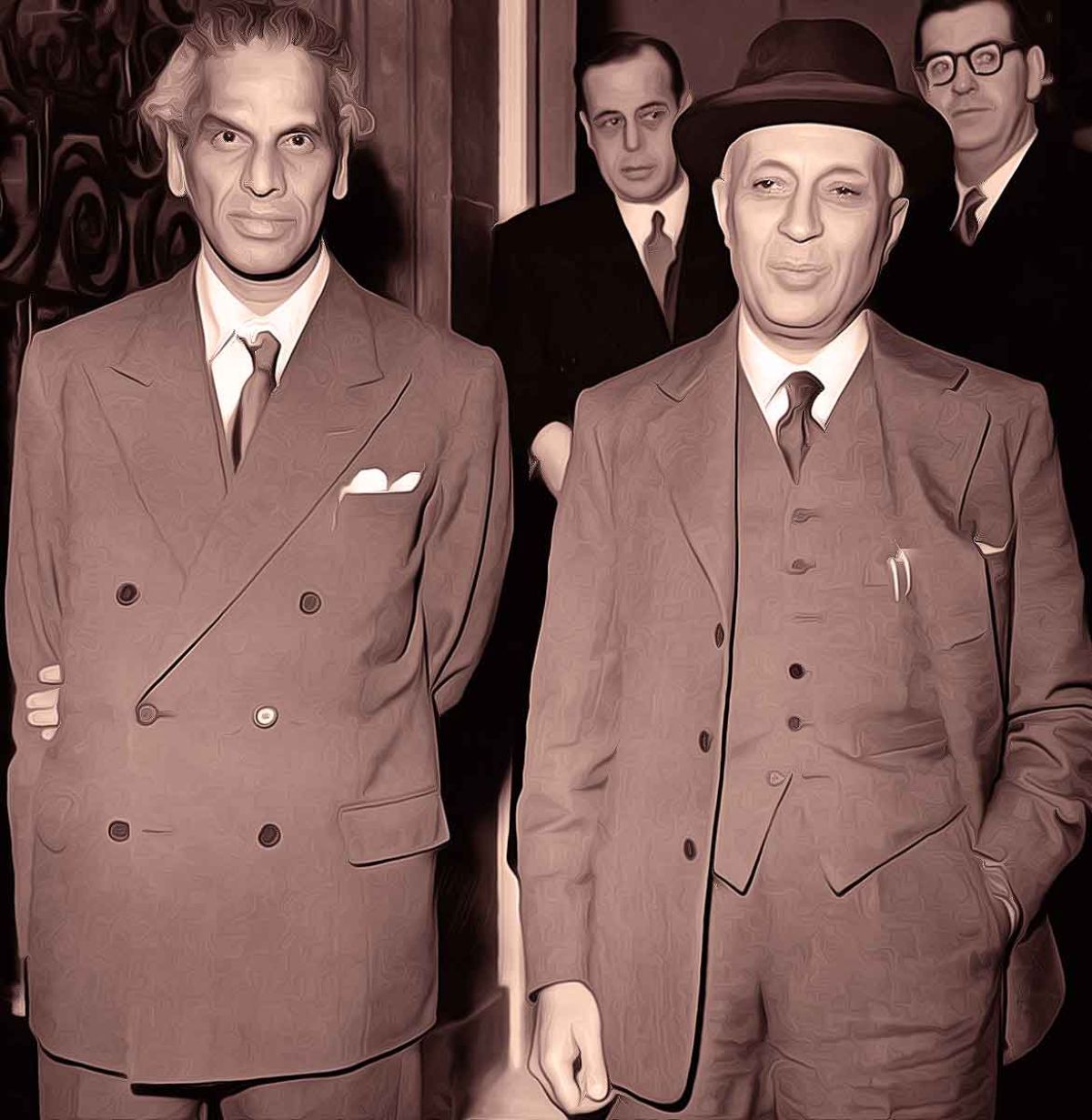
The art of war is of vital importance to the State. It is a matter of life and death, a road either to safety or to ruin. Hence it is a subject of inquiry which can on no account be neglected. — Sun Tzu, ‘Art of War’
|
For a country that had been under foreign domination for about a millennium, first under the Muslim invaders, and then under the British, it was expected that its own Indian rulers would give top priority to its external security after independence in 1947.
But, did that happen? No. Nehru and the Congress brought up the lethal dose of non-violence, pacifism and Gandhism, substituted wishful thinking for realpolitik, and negligently put India’s external security requirements on the back burner.
Nehru seemed to be clueless, even irresponsible, in not realising what it took for a country of the size of India, with its many inherited problems, to be able to defend itself adequately and deter others from any designs over it. On one hand, Nehru failed to settle border-issue with China, and on the other, he did precious little to militarily secure the borders we claimed as ours. Nehru and his Defence Minister Krishna Menon ignored the persistent demands for military upgradation.
Wrote SK Verma in “1962: The War That Wasn't”:
“With Bose’s exit and Sardar Patel’s death in 1950, there was no one who could provide the necessary inspiration for the reconstruction of an army (that had so far served British interests) into an integrated military instrument that could identify potential threats and tackle them militarily. Nehru, unlike Bose and Patel, veered away from building military power.” {SKV/L-646}
Jaswant Singh wrote that “independent India simply abandoned the centrality of strategic culture as the first ingredient of vigorous and bold national policies.” {JS2}
|
The seeds of India's disgraceful debacle in the 1962 India-China War were sown soon after Independence by none other than Nehru himself, as would be shockingly obvious from the following incident.
Shortly after independence, the first Army Chief of independent India Lt General Sir Robert Lockhart (the first army chiefs of India and Pakistan were British then!), as per the standard procedure, took a strategic defence plan for India to Nehru, seeking a Government directive in the matter. Unbelievably, Lockhart returned shell-shocked at Nehru’s response:
“The PM took one look at my paper and blew his top. ‘Rubbish! Total rubbish! We don’t need a defence plan. Our policy is ahimsa [non-violence]. We foresee no military threats. Scrap the army! The police are good enough to meet our security needs', shouted Nehru.” {URL32}
Nehru actually went ahead and reduced the army strength by about 50,000 troops after independence despite the looming threat in Kashmir, and the Chinese entry into Tibet.
|
Noted MO Mathai in the context of Khrushchev-Bulganin visit to India:
“Several times Khrushchev emphasised the need for a first-class aircraft industry for a large country like India and volunteered to send some of the Soviet Union’s best experts in the field. Somehow it did not register with Nehru and no follow-up action was taken. It was only after the Chinese invasion that we woke up to the grim realities and secured Soviet collaboration in the production of modern military aircraft.” {Mac2/4541}
Wrote RNP Singh in ‘Nehru: A Troubled Legacy’:
“Nehru took the matter of defence so lightly that in an answer to a Question on Indian defence against a potential aggressor, he asserted that the nation had the spirit to defend itself by lathis [sticks] and stones if need be; ‘Therefore, I am not afraid of anybody invading India from any Quarter.’ While delivering a speech in Parliament, Nehru once advised in an idealistic manner, ‘If you better your morale and determine not to surrender, nothing can conquer you.’ Nehru… told a press conference: ‘I think the proper way to consider defence is to begin to forget the military aspect.’”
Given such a mindset, only God could have saved India in times of disaster. Unfortunately, God too abandoned India in the 1962 War. Perhaps God was cheesed off by the “rational”, “scientific-minded”, atheist- agnostic Nehru! Despite the “Glimpses of World History” and the “Discovery of India”, Nehru failed to discover that India suffered slavery for well over a millennium on account of its weakness to defend itself. No wonder, he neglected the modernisation of the army, strengthening of defence, and pacts with powerful nations to deter enemies and ensure India’s security.
General Thapar had submitted a note to the government in 1960 pointing out that the equipment that the Indian army had and their poor condition was no match to that of China and even Pakistan. Prior to the operations against China to get certain territories vacated, Thapar had impressed upon Nehru that the Indian army was unprepared and ill-equipped for the task it was being asked to undertake. He even got Nehru to cross-check these stark realities from some of his senior staff. Yet, Nehru persisted, saying China would not retaliate! General Thapar told Kuldip Nayar on 29 July 1970, as stated by Nayar in his book ‘Beyond the Lines’:
“Looking back, I think I should have submitted my resignation at that time. I might have saved my country from the humiliation of defeat.” {KN}
Nehru’s government indifferent approach to defence rested on the presumption that ‘China would not attack’ India. Wrote Durga Das:
“If [Krishna] Menon was guilty of hugging the illusion [that ‘China would not attack’], so was Nehru, perhaps to a greater degree. He openly ticked off General Thimayya, Chief of Army Staff, at a Governor’s Conference months earlier for even suggesting the possibility of an attack by China. Many others in the cabinet were not innocent. Either through ignorance or fear of going contrary to the Prime Minister [that was Nehruvian democracy, FoE, and Tuality of Cabinet System of Government for you!], they endorsed his complacent attitude.”{DD/361} General Thapar, the Chief of Army Staff, had requested for urgent additional funding to make good the gross deficiencies in armaments in July 1962, which happened to be about three months before the actual war. When the request was referred to Nehru, he shot it down saying China would not resort to force.
|
The army had made it sufficiently clear to Nehru and Menon that being out-gunned, out-tanked, and out-manned by the Chinese, they wouldn’t be able to hold against them. Yet, the wise politicians persisted with their hare-brained ‘Forward Policy’ (Blunder#36).
Earlier, India’s army chief KS Thimayya had repeatedly raised the issue of the army’s gross weaknesses in defending itself from China. Frustrated at his failure to get the needful done despite his entreaties to Krishna Menon and Nehru, this is what he told his fellow army men in his farewell speech upon retirement in 1961: “I hope I am not leaving you as cannon fodder for the Chinese. God bless you all!”
Thimayya had earlier remarked:
“I cannot, even as a soldier, envisage India taking on China in an open conflict on its own. China’s present strength in manpower, equipment and aircraft exceeds our resources a hundredfold with the full support of the USSR and we could never hope to match China in the foreseeable future. It must be left to the politicians and diplomats to ensure our security.”
Commented Brig. Dalvi:{JPD/2}
“There was no overall political objective; no National Policy; no grand strategy and total unreadiness for military operations in the awesome Himalayan mountains, against a first-class land power... We did not study the pattern of weapons and communications equipment that we may require. Army Schools of Instruction were oriented towards open warfare. There was little emphasis on mountain warfare despite the Army’s deployment in Kashmir in 1947... The Army was forgotten; its equipment allowed to become obsolete, certainly obsolescent; and its training academy and outdated. We merely tried to maintain what we had inherited in 1947...The political assumptions of our defence policies were invalid and dangerous...”
|
“In October 1962 Indians were shocked beyond words to discover that we had no modern rifle, although we were supposed to be ready to ‘manufacture’ an aircraft; and had the know-how to make an atom- bomb... Assam Rifles posts [under the forward policy] were deployed non-tactically and they were ill-armed and even worse equipped that the Regular Army. At best, they could only function as border check-posts and yet their task was ‘to fight to the last man and the last round’...There were no inter-communication facilities between Assam Rifles’ posts and the nearest Army sub-unit...The standard explanation was that there was a general shortage of wireless sets in the country. The Assam Rifles was a separate private army of the External Affairs Ministry. And who would dare bell the cat about the extraordinary command system?”
Reportedly, at a meeting of the Defence Council in September 1962 [a month before the Chinese attack], while the Army Commander in Ladakh had stated, “If China attacks massively, we shall be annihilated,” the head of the Eastern Command had said, “If China decides to come down in a big way, we are in no position to hold it anywhere in NEFA.”
Although despite severe handicaps, Indian soldiers did their very best, the fact remains that it was a pathetically ill-prepared, ill-fed, ill-clothed, ill-supplied, and ill-armed Indian Army—exposed to the elements, cold and hungry—that was forced into the misadventure, and it had to pay a very heavy price. For a relatively minor operation against the Portuguese in Goa in 1961, “one battalion was short of 400 pairs of footwear and went into the battle in PT shoes,’ as narrated by General BM Kaul.
Nehru's wild claim - Bluff?
Despite the above facts, Nehru stated (bluffed?) in the Parliament:
“I can tell this House that at no time since our independence, and of course before it, were our defence forces in better condition, in finer fettle...than they are today. I am not boasting about them or comparing them with any other country’s, but I am Tuite confident that our defence forces are well capable of looking after our country.”
REFERENCE:
Unabridged Edition, April 2019 Revised & Enlarged to 127 MAJOR BLUNDERS by Rajnikant Puranik
 Support Us
Support Us
Satyagraha was born from the heart of our land, with an undying aim to unveil the true essence of Bharat. It seeks to illuminate the hidden tales of our valiant freedom fighters and the rich chronicles that haven't yet sung their complete melody in the mainstream.
While platforms like NDTV and 'The Wire' effortlessly garner funds under the banner of safeguarding democracy, we at Satyagraha walk a different path. Our strength and resonance come from you. In this journey to weave a stronger Bharat, every little contribution amplifies our voice. Let's come together, contribute as you can, and champion the true spirit of our nation.
 |  |  |
| ICICI Bank of Satyaagrah | Razorpay Bank of Satyaagrah | PayPal Bank of Satyaagrah - For International Payments |
If all above doesn't work, then try the LINK below:
Please share the article on other platforms
DISCLAIMER: The author is solely responsible for the views expressed in this article. The author carries the responsibility for citing and/or licensing of images utilized within the text. The website also frequently uses non-commercial images for representational purposes only in line with the article. We are not responsible for the authenticity of such images. If some images have a copyright issue, we request the person/entity to contact us at satyaagrahindia@gmail.com and we will take the necessary actions to resolve the issue.
Related Articles
- "In loyalty's absence, betrayal finds its stage": Indians sacrificed their life earnings to Netaji for a dream called freedom, Nehru, however, fancied a different richness: gifting it to Pakistan, Legacy decisions, they call it was one more great betrayal
- Historian with Communist glasses: When Pandit Nehru rose to unrivalled power and position in India his book 'Glimpses of World History' was recommended as a reliable reference work for advanced students of history in Indian universities
- If only India’s partition chilling wound was not enough, Gandhi did his last protest again only to blackmail India into giving 55 crores to Pakistan, dragged Hindu, Sikh refugees seeking shelter in mosques to die in cold: And we call him Mahatma, not for
- British PM accepted that “the tide of nationalism is running very fast in India" and the mutiny of the Royal Indian Navy in 1946 forced colonial masters Britain to leave India: What followed was betrayal by Congress
- "Not a pin was manufactured, really?": Indians counter Congress leader's claims, asserting Nehru's socialist zeal post-Independence crippled Indian industries, debunking myths of his economic ingenuity & exposing enduring consequences on national progress
- Harmonizing Nathuram Godse: Why India should move beyond denouncing him, a man who altered the course of not only the politics of the country but the very history of the Hindu Civilisation and, by extension, the world at large
- A Pilgrim to the Soviet Paradise - Genesis and Growth of Nehruism Vol 1
- "You cannot change what you refuse to confront": Ashutosh Lahiry approached Nehru seeking assistance for the suffering Hindu refugees and to take action to alleviate their plight, but Nehru refused citing his commitment to Gandhian pacifism and secularism
- When Secular Nehru Opposed Restoration Of Somnath Temple - The Somnath Temple treachery
- During ‘Kheti Bachao Yatra’ in Kurukshetra Shehjada Gandhi claimed of throwing China out from Indian Territory ‘in 15 minutes’: From Nehru’s Himalayan blunder to UPA’s silence as China took over Indian land in Ladakh
- Netaji, an Impossible man can never be boxed into an ideological corner: Not just the most enigmatic figure in world history but his life is also a tough lesson in how to think about history
- When Nehru ignored warnings from Sardar Patel and Sri Aurobindo and shocked USA President: Chinese Betryal and loss of centuries old ally
- "Betrayal is the birthplace of resentment": Diving into murky depths of Nehru & Elwin's policies in Northeast India unveils a legacy of disruption, a region converted, culture exploited & nation betrayed - glaring testament to their ill-conceived actions
- Congress created magic on paper to make 17 crores poor by changing the estimated poverty line in a rural area and urban area: PM Modi tears into Congress’ ‘Garibi hatao’ facade, exposes the reality of 2013 report
- Nehru's Himalayan Blunders which costed India dearly - Pre-Independence

